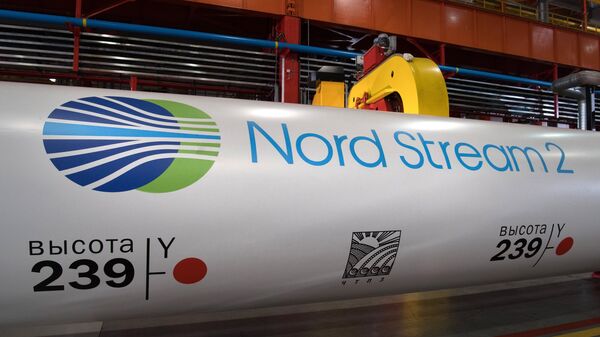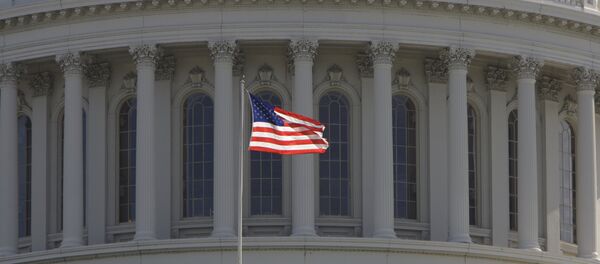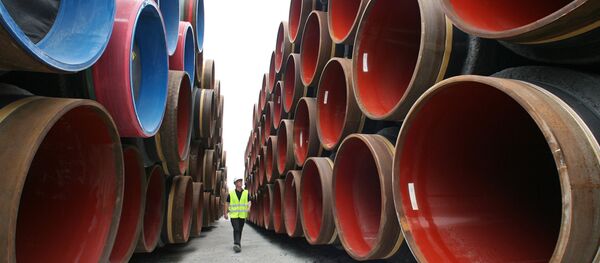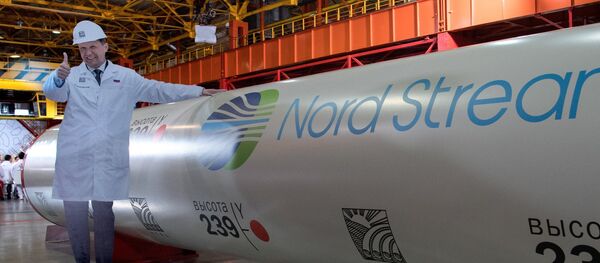Speaking to the Wall Street Journal in an interview published Monday, Kobolyev said that Washington should find the appropriate measures to penalize companies participating in Nord Stream 2, warning that the project threatens not only Ukraine, but European unity as well.
"We would advise the US to expand sanctions against all companies potentially involved in this project as soon as possible," the official said.
In addition to Russian state gas giant Gazprom, Nord Stream 2 involves some of world's largest energy companies, including OMV (Austria), Engie (France) Uniper and Wintershall (Germany), and Shell (the UK and the Netherlands). Earlier this month, the company received over one billion euros in financing. The pipeline is expected to start operation in 2019.
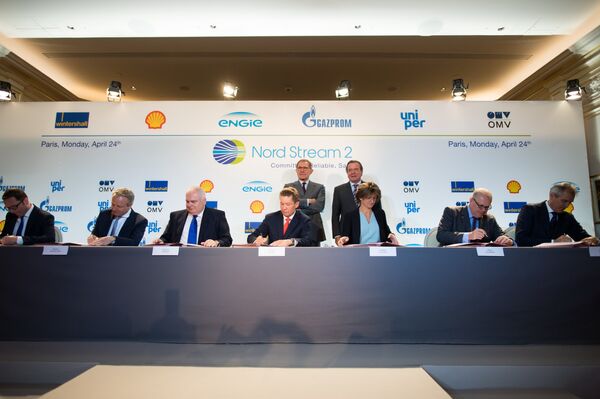
While Trump himself has been silent on the issue, US lawmakers have made their position clear. Last week, the Senate overwhelmingly approved a bill proposing new sanctions against Russia. The bill, which includes restrictions against Moscow tacked on to a bill slapping Iran with new sanctions, targets the Russian banking, mining, shipping and railway sectors, and restricts debt dealings with Russian banks and energy companies. The bill also takes aim at Nord Stream 2. Mike Crapo, co-author of the Russia sanctions amendment, said the bill targets "those who…invest or support the construction of Russian energy export pipelines."
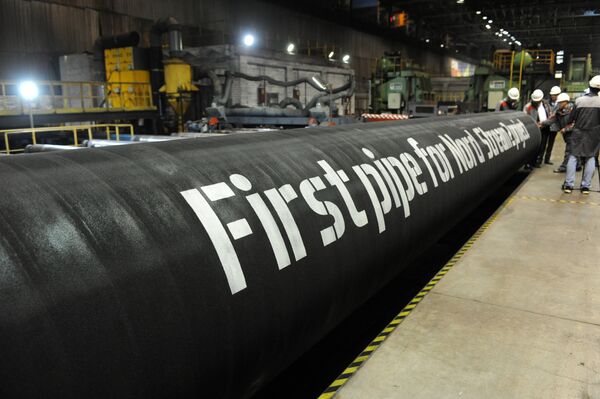
European officials have slammed the Senate bill. Berlin and Vienna issued a joint statement last week saying that the new sanctions threatened to make the European energy industry less competitive, and would put thousands of jobs on the line. This was an "absolutely new and highly negative aspect in relations between the US and Europe," the statement read.
Asked to comment on Kiev's latest efforts, and on how Nord Stream 2 threatens to create a rift in the US-European partnership, Roman Tkachuk, a senior financial analyst at Alpari Group, told Radio Sputnik that the final decision on pipeline will be for the EU to make.
"For Nord Stream 2, the overriding factor is not what the US decides, but what Europe decides, and specifically what the European Commission decides," the analyst stressed.
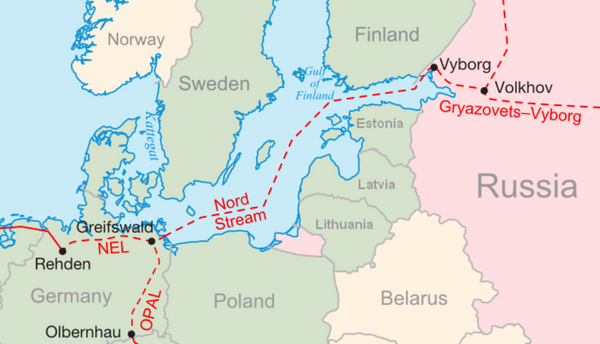
"That is, the US may impose sanctions against all the companies engaged with Nord Stream 2, but if a country like Germany approves the project's implementation, it will be fulfilled, and will get financing. Because Germany is the host country, and its companies are shareholders of this project, I think Berlin is in favor of this project. Because if Germany does implement Nord Stream 2, it can become a gas hub in Europe, giving it control of the redistribution of gas flows. That is an advantageous position to be in."
The EC recently approved a special mandate to negotiate Nord Stream 2. Analysts have suggested the unprecedented move is meant at least in part to pressure Russia to continue to pump natural gas through the Ukrainian gas transit network. Kiev currently earns about $2 billion a year in transit fees, but its current contract with Gazprom ends in 2019, and Gazprom has hinted that it has no plans to renew it.
The Russian gas giant has made it no secret that it wants to build pipelines through the Baltic and Black Seas to bypass unstable, unreliable or unfriendly transit states in Eastern Europe while supplying countries in Western Europe. Western European energy companies, meanwhile, are interested in stable, regular natural gas supplies, keeping in mind the experience of decades past of having supplies cut by Eastern European countries facing price disputes with Moscow.
